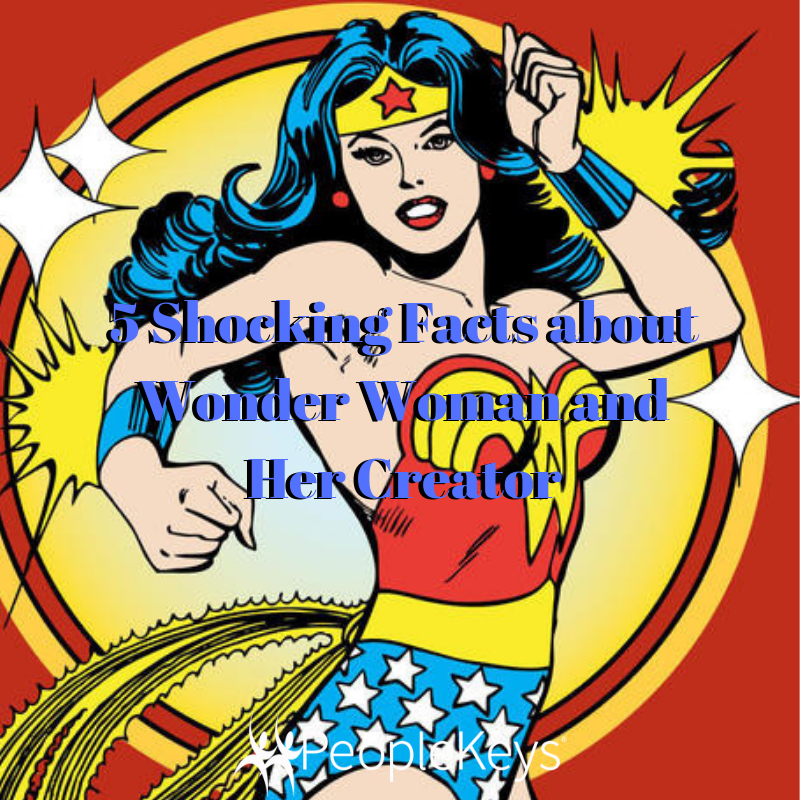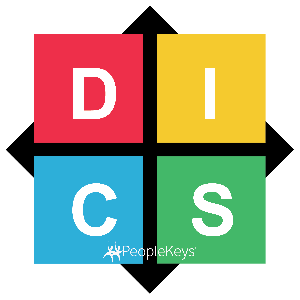
5 Shocking Facts About Wonder Woman and Her Creator
You may have seen the Wonder Woman movies, but do you know the story behind her creation and origin?
Wonder Woman is designed to be the perfect combination of all four of the primary DISC personality styles.
Want to see how you measure up to Wonder Woman? Take our DISC Personality Test to discover your strengths!
Wonder Woman's Origin
The Wonder Woman movies might be blockbuster hits, but did you know that the life (and lies) of Wonder Woman's creator, Dr. William Marston are almost as interesting as that of his famous heroine?
Marston developed both Wonder Woman and the Lie Detector Test. He also founded the DISC model, one of the most accurate and widely used personality assessment systems worldwide.
With such a diverse list of accomplishments, Dr. Marston is already a fascinating character. But his abnormal personal life adds another layer to the story of the origin of Wonder Woman.
1. Wonder Woman was designed to be one man's perfect woman.
Diana Prince (Wonder Woman) incorporates elements of all four of Marston's DISC categories of personality. In that sense alone, she is superhuman.
DISC has been changed, updated, and reassessed since it began at Harvard in the 1920s. But the four fundamental personality styles have remained pretty much the same since Dr. Marston published his culturally revolutionary book, "Emotions of Normal People."
The Four Personality Styles of both Wonder Woman and DISC
DISC theory asserts that all people are a combination of four personality styles. These are the Dominant Influential, Steady, and Conscientious personality types.
The DISC personality system operates under the understanding that everyone possesses a little bit of each style. However, each individual usually only has two or three predominant types. The rest of the traits rarely present themselves.
Marston's Ideal Woman
Wonder Woman is the ideal woman because she possesses a high degree of all of the personality styles. She takes advantage of all of the strengths of the different types while minimizing their weaknesses.
Wonder Woman is a progressive character not only because of her gender but because of her duality. Marston, under the pen name Charles Moulton, embraced the complexity of human personalities and saw the benefit of multi-dimensional human beings.
You can see that in his use of opposites within DISC. Dominance versus Submissive/Steadiness and Influencing/Inspiring versus Compliance/Conscientiousness are pairs of opposites within the DISC model. None of the personality styles are considered deficient in DISC. But an overabundance of one trait, and a deficit of others, indicates that a person may benefit from some behavioral awareness.
As Marston himself said: "Frankly, Wonder Woman is psychological propaganda for the new type of woman who, I believe, should rule the world."
2. Wonder Woman's creator considered her ideal because she was both Dominant and Submissive (Yes, like that).
Marston shared a somewhat abnormal fixation for the early 1900's- an appreciation of pin-up and bondage aesthetics.
But don't let this throw you off of Wonder Woman or Marston himself. Marston was every bit as complex and, at times, contradictory as his famous heroine.
Wonder Woman was all four personalities rolled into one. While she didn't hesitate to fight the bad guys, armed with her bullet-deflecting bracelets or shield, she could also pause to be strategically cautious or passive. She could alternate between submissive or dominant when the situation called for either trait.
As the perfect woman, Diana Prince always fought for justice and sought to break the chains that bound her. Seedy bondage-themed implications aside, these chains were intentional symbolism on behalf of Marston.
The Problem with Passivity
Marston was a progressive man, a man before his time. He fought for women's suffrage and was a big proponent of women's rights. Dr. Marston believed that it was problematic for society to force women into submissive roles, to bind them symbolically.
He frequently depicted Wonder Woman as powerless when chained. He saw "chains" as a symbol for the types of limitations placed upon women in his time.
Marston had a front-row seat for the struggles of the suffragettes. And he wrote the Wonder Woman comics from 1941-1947, during and after World War II. These were times when women's struggles were widely visible in the public eye.
He believed that women deserved to be emancipated from the limitations placed on them by men. To this end, he fought for suffrage and women's rights—all while including pin-up art aesthetics and subtle implications of bondage into his semi-feminist superheroine comics.
Like the living contradiction that Marston was, he fought for women's rights while simultaneously objectifying them.
3. Wonder Woman's Lasso of Truth is similar to one of her author's inventions, the lie detector test.
Dr. Marston is widely credited with being the originator of the Lie Detector Test. Though, in true Marston fashion, this credit is also partially due to his wives.
One of his wives, Elizabeth Holloway Marston, believed there was a correlation between blood pressure and emotions. They analyzed this connection and eventually turned it into the Systolic Blood Pressure test. This test preceded the Polygraph as we know it today.
The Systolic Blood Pressure test and Polygraph test are similar to a real-life version of Wonder Woman's Lasso of Truth, a rope that forces people to tell the truth when tied up. And Dr. Marston's personal life was a prime target for this infamous Lasso of Truth.
Marston's life was filled with lies and contradictions. While his research and public life were both groundbreaking and extraordinary, his personal life casts a shadow on his substantial accomplishments.
4. Wonder Woman's developer loved women so much that he had two wives.
Ironically, the co-creators of the polygraph test were prolific liars.
Dr. Marston and his wife Elizabeth "Sadie" Holloway Marston hid that Marston was also married to his former student, Olive Byrne.
Both wives, Dr. Marston, and their children lived under one roof. "Because of the unusual relationship situation and living arrangements, anyone who asked was told that Olive was Elizabeth's widowed sister."
Olive's children were told that their father had passed away, when in fact, their father was William Marston. Olive raised both Elizabeth's children and her own while Elizabeth and William worked. She frequently wrote columns on how to raise children in a moral household, which is also ironic considering her extremely atypical home life.
The three Marstons kept their relationship a secret, with Elizabeth serving as William's public wife. Their strong personalities and significant accomplishments were influential on their husband. Both of Marston's wives deserve credit for inspiring the Amazon hero we know and love today.
5. Wonder Woman answers the need for a female superhero. A need her creator recognized in the early 1900s.
Dr. Marston felt appalled by what he called "the blood-curdling masculinity" depicted in comic books. Superheroes were always hyper-masculine and extremely violent. Dr. Marston attributed this violence to an over-abundance of the Dominant or "D" Style personality trait. Contrary to this, he valued a balance of all four personality styles.
Marston was likely influenced by seeing the effect that a male-dominated world had on his wives. His wife, Elizabeth, was a career woman who was forbidden from attending Harvard's law school due to her gender.
The Suffragist Movement of the 1910s also influenced Marston. When Fascism took root in Europe in the 1930s and 40s, this deeply disturbed him.
He saw violent superheroes in comics as contributing to this disturbing ideology. Women, Marston believed, deserved a champion of their own. A patron who would fight for beauty and truth, not world domination.
Because of this, when Marston created his new Superhero, he said to his colleague: "Look, if you had a female superhero, her powers could all be about love and truth and beauty, and you could also sell your comic books better to girls. And that would be really important and great because she could show girls that they could do anything."
While Marston's personal life may have been less than admirable, the Superhero he left as a legacy is anything but.







